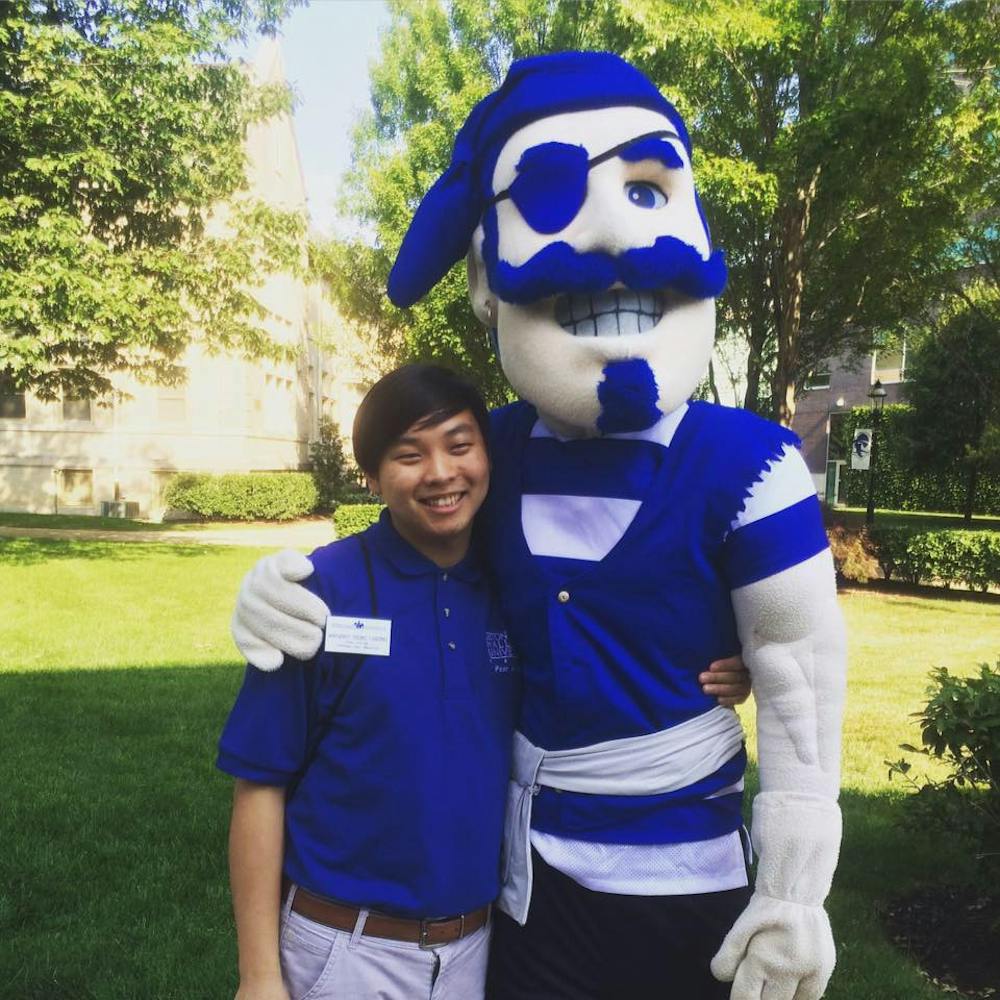A decline in international applicants is a common fear held by admissions officers across the United States.
According to a New York Times report, a recent Kaplan Test Prep survey revealed 63 percent of nearly 400 admissions officers from different colleges and universities “are concerned about a decline in international applicants becoming a nationwide trend.”
[caption id="attachment_20931" align="aligncenter" width="960"] Seton Hall’s international student population remains consistent.
Seton Hall’s international student population remains consistent.
Photo via Facebook/Anthony Toung Cheong[/caption]
Although admissions officers are unsettled by the decline according to the same Kaplan survey, only 32 percent anticipate a decline in international applicants at their own institutions.
While this information may warrant concern, Seton Hall University’s international student population and applicant pool remains constant.
According to Alyssa McCloud, vice president of Enrollment Management, applications for 2018 are similar to last year’s applicant pool.
“In general we get about 500 hundred applications each year from International students seeking to enroll as incoming freshman,” wrote McCloud in an email.
In the past three years, the enrollment of international freshman has been 49, 40 and 57 students, respectively, according to McCloud.
International student Ni Hsin Yang, a sophomore nursing major, transferred to Seton Hall after studying English at Northampton Community College last year.
She left her homeland of Taiwan to receive a better education in the United States.
“I attended college in Taiwan for one year,” Yang wrote in an email. “Then, I felt that I learned nothing. The professors in Taiwan just teach information only from the textbooks, but in the U.S., a professor teaches students how to think. That is definitely my worst part - critical thinking.”
Although Yang lauds the campus’ Office of International Programs for their assistance, she wishes there were more activities on campus for meeting other international students.
“The international office in Seton Hall University is good. It gives a lot of information to international students, such as a driver license workshop and job workshops. They are really helpful. However, I feel that the international office in my last school is better because they hold some events for international students to get together so that we can get close to each other,” Yang wrote.
Adah Beck, a sophomore biochemistry major in the pre-med program, chose to crossover from Canada to attend Seton Hall because of the University’s intimate classroom sizes, the rigorous medical studies and the Christian mission.
Beck mentioned Seton Hall’s campus welcoming presence and her contentedness with the University. Additionally, she emphasized how international students should maintain their unique backgrounds and not attempt to “fit in with everyone else.”
“Everyone here at Seton Hall comes from a different background and I think that the emphasis put on diversity definitely helped to welcome me and other international students to our home away from home,” Beck said.
Moreover, Beck included that the Office of International Programs “has also done a great job in organizing and accommodating events for us international students to meet each other and talk about life here and at home,” Beck wrote.
Anthony Toung Cheong, a senior chemistry major, crossed the globe from his native island of Mauritius, a country east of Madagascar, to experience a different education system and culture. According to Cheong, most of his friends from Mauritius are currently international students in the U.S., U.K., Canada and Australia.
Cheong believes that he and his friends wanted “to be able to get a college degree from a better ranked institution than the University of Mauritius and to build a career in a more developed country with more opportunities.”
As president of the International Student Association, Cheong acknowledged the many opportunities for international students on campus to assimilate into an American college setting.
“The international student association is an organization on campus that helps with the cross cultural exchange between international students and American students,” Cheong said. “The iBuddy program pairs two students, one international and one American, together and plans a few programs every semester for students to mingle and learn about each other’s culture.”
Nevertheless, Beck implores more international students to attend international events, but she also hopes that more events would be held on campus.
“More student involvement and some sort of program that offers scholarships that international students are actually eligible would be nice to see,” said Beck, “but I also do understand that both of those are difficult to achieve and I love all that Seton Hall is already doing to make international students a fundamental part of its core.”
Thomas Schwartz can be reached at thomas.schwartz@student.shu.edu.

Comments




